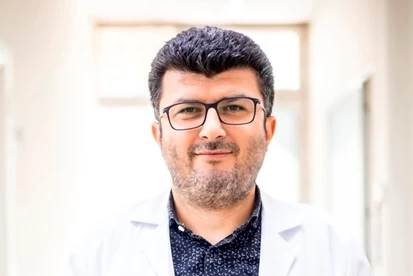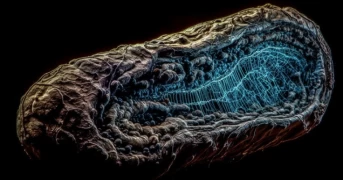
Thyroid Cancer
- Thyroid Cancer
- What is the Thyroid?
- Thyroid Cancer
What is the Thyroid?
The thyroid is a butterfly-shaped gland located in the neck. As part of the endocrine system, the thyroid produces and releases important hormones. These hormones play a role in regulating the body's metabolism and many other vital physiological processes.
The thyroid gland consists of two lobes and is situated on the trachea (windpipe). The main hormones produced by the thyroid are called triiodothyronine (T3) and thyroxine (T4), commonly known as thyroid hormones. These hormones regulate energy production in body cells, heart rate, body temperature, protein synthesis, and other metabolic processes, thus controlling overall body functions.
The function of the thyroid gland is regulated by the thyroid-stimulating hormone (TSH) produced by the pituitary gland. TSH, secreted by the pituitary gland, stimulates the thyroid gland to increase or decrease the production of T3 and T4.
Proper thyroid function is crucial as the balance of thyroid hormones ensures healthy functioning of body processes. However, various conditions can affect the production of thyroid hormones. These conditions include:
- Hyperthyroidism: A condition in which the thyroid gland is overactive and produces excessive amounts of thyroid hormone. It can lead to symptoms such as increased metabolism, excessive sweating, weight loss, irritability, tremors, and rapid heartbeat.
- Hypothyroidism: A condition in which the thyroid gland is underactive and fails to produce sufficient amounts of thyroid hormone. It can lead to symptoms such as decreased metabolism, fatigue, weight gain, depression, dry skin, and hair loss.
- Thyroid nodules: Small masses that form in the thyroid gland. They are usually benign, but in rare cases, they can be cancerous. Thyroid nodules often do not cause symptoms, but they can cause symptoms such as swelling in the neck or difficulty swallowing when they grow.
- Thyroid cancer: Cancer that develops in the thyroid gland. It falls under the types of thyroid cancer mentioned earlier. Symptoms generally appear in advanced stages.
Disorders of the thyroid gland are typically diagnosed through blood tests and imaging methods such as ultrasound and scintigraphy. Treatment may vary depending on the condition and can include thyroid hormone replacement, medications, radioactive iodine therapy, surgical intervention, or a combination of these approaches.
In conclusion, the thyroid is a gland located in the neck that plays a vital role in regulating body metabolism. Disorders of the thyroid gland can disrupt metabolic functions. If you have any thyroid symptoms or concerns, it is important to consult a doctor.

Thyroid Cancer
Thyroid cancer is a type of cancer that occurs in the thyroid gland. The thyroid gland plays a significant role in regulating body metabolism. Therefore, determining the appropriate treatment approach is crucial for individuals diagnosed with thyroid cancer.
Thyroid cancer often progresses without causing symptoms, making early detection challenging. However, it is important to seek medical attention if symptoms such as a thyroid nodule, swelling in the neck, or hoarseness are noticed. A doctor diagnoses thyroid cancer through physical examination, blood tests, thyroid ultrasound, and/or biopsy.
Thyroid cancer can originate from different types of cells. The most common types of thyroid cancer include:
- Papillary Carcinoma: The most common type of thyroid cancer, usually slow-growing, and with a low tendency to spread to other organs. Papillary carcinoma generally has a good prognosis.
- Follicular Carcinoma: This cancer type also tends to grow slowly. Similar to papillary carcinoma, it has a low risk of spreading to other organs.
- Medullary Carcinoma: Medullary carcinoma originates from the C cells of the thyroid gland. This cancer is more aggressive and has a higher risk of spreading to other organs. Medullary carcinoma is sometimes associated with a genetic syndrome.
- Anaplastic Carcinoma: This cancer type is rarer than other types of thyroid cancer but is more aggressive and can grow rapidly. Anaplastic carcinoma generally has a poor prognosis.
Thyroid cancer treatment depends on the tumor type, stage, and the overall health of the patient. Treatment usually involves surgical removal of the entire thyroid gland or a part of it. Complete removal of the thyroid gland is called "total thyroidectomy," while partial removal is referred to as "lobectomy" or "subtotal thyroidectomy." After surgery, some patients may receive additional treatments such as radiotherapy or radioactive iodine therapy. Radiotherapy uses high-energy rays to kill cancer cells, while radioactive iodine therapy targets and destroys thyroid cells using radioactive iodine.
Thyroid cancer generally has a good prognosis, and the chances of recovery are high with early detection and appropriate treatment. However, in some cases, cancer can spread or recur. Regular follow-up checks and monitoring of thyroid hormone levels are important.






